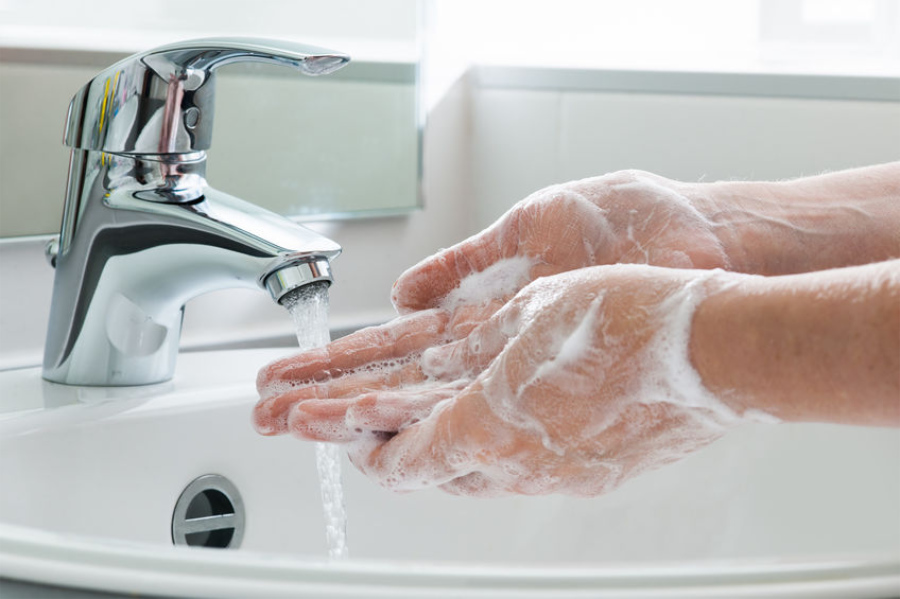At the time of writing this piece (10th of March 2020) there have been around 115,000 cases of COVID-19 resulting in just over 4000 deaths globally. The rate at which the virus is spreading is causing a level of panic in some individuals, complacency in others and some confusion along the way.
Please note that this is not a replacement for information and advice provided by the World Health Organisation or the NHS.
In this article I want to highlight very clearly some things that you can do to help yourself and those around you by controlling factors that are within your control and supporting your general health and immunity as best as you can. Guess what, panic buying toilet roll is not top of the agenda!
Firstly, what do the stats say?
Currently there are only 4.7 cases per 1 million of the population in the UK. In China that number is below 100 cases per 1 million of the population and Italy being the highest risk with around 150 people per 1 million of the population.
So, for starters the chances of getting the infection are relatively low. This number is likely to increase so we should not be too dismissive of COVID-19 because of this. However, from those that do become infected the mortality rate is currently around 3.4%, and the UK currently follows this trends. The seasonal flu has a death rate of less than 1%, in fact in many countries as low as 0.1%. Seasonal flu is of course a much more widely spread virus compared to COVID-19 at this time, hence it results in a significantly higher number of deaths than COVID-19 on a day-to-day basis. Also to put into context as well, the amount of deaths caused by smoking around 20000 per day, diabetes around 5000-10000 daily far exceed death by viruses and these are largely preventable with nutrition, lifestyle and behaviour change modification.
With COVID-19 there have been no deaths in anyone from 0-9 years old and less than a 0.2% mortality risk for those under 40 years old. Those 40-49 years of are still under 0.5%, 50-59 years old 1.3%, 60-69 years old 3.6%, 70-79years old 8.0% and those above 80 years old 14.8%. As you can see the mortality risk increases as we age, as would be predicted and as health complication risks increase, such as diabetes, cardiovascular disease, respiratory diseases etc.
It is clear from these stats that we need to protect those that are older and more vulnerable with pre-existing conditions.
Controlling the controllable
A lot of what is going to happen with the virus is largely out of your control, however there are some considerations to help to protect yourself and others from COVID-19.
High priority considerations
These are some of the messages that you have already been exposed to and should certainly be listening to.
- Wash your hands for at least 20 seconds and do this regularly throughout the day, especially after coming into close contact with others, travelling on public transport or being in public areas.
- Avoid the temptation of sticking your fingers in your eyes, nose or mouth!
- If you are ill, minimise your contact with people, especially the vulnerable, in fact avoid contact with anyone vulnerable if you know you are ill. The vulnerable are generally those over the age of 60/70 and those with pre-existing health conditions.
- Call a healthcare professional if you think you have the virus, based upon the symptoms that you are experiencing, don’t go walking into your local A&E or Drs surgery where there is a high proportion of vulnerable people coughing and spluttering.
Symptoms
80% of all cases are mild, in fact some cases are said to be asymptomatic (no symptoms demonstrated), this is what can make preventing such a disease so challenging.
In milder cases the symptoms might last around 2 weeks, whereas in more severe cases it looks like 3-6 weeks.
The classic symptoms are:
- Fever
- Dry cough
- Chest tightness or pain
- Shortness of breath
The more classic symptoms of a common cold like sneezing, running/stuffy nose, sore throat are NOT symptoms of COVID-19.
As I mentioned before, if you have classic symptoms then call a qualified medical professional for advice.
Nutrition & lifestyle considerations
These are not considerations specifically for COVID-19, but more to create a strong foundation to help your own immune function, making it easier to prevent or get over illnesses.
Sleep
Simply put, a lack of sleep impairs your immune system and increases the risk of catching common cold and flu viruses. Try and regulate your sleeping hours as best as you can, waking up and going to bed around the same time. Your goal is around 7-8 hours of good quality sleep, for the majority of the population, but certainly aim for at least 6 hours of quality sleep.
Minimise all processed foods
While everyone rushes to the supermarkets to fill their cupboards with non-perishable processed foods, it is important to highlight that the consumption of highly processed foods can acutely impair immune function. This is one of the reasons it frustrates me when I see emphasis on calories only when it comes to nutrition guidance by some professionals. Focus your diet on wholefood options and a naturally colourful diet to help support immunity.
Stress
Here’s another important one, as everyone freaks out about COVID-19 and they enter into a chronic state of anxiety, the stress responses related to factors that are largely out of their control is most likely contributing to impaired immunity, resulting in a lessening of white blood cells, immune proteins etc, hence increasing their risk of becoming ill.
Sunlight
Unless you find yourself in quarantine, get outdoors in natural sunlight. This is not only good to help with managing sleep and stress, but it can also help to support your Vitamin D levels naturally. Vitamin D can help to prevent upper respiratory infections and at this time of the year, most people’s vitamin D, unless supplementing or living in the southern hemisphere is at least insufficient or potentially deficient. You can even test vitamin D at home these days if that is something that interests you. Testing helps to guide supplement dosing if that is necessary.
Supplements
I checked the supplement store of one of my trusted suppliers in the UK today as I had a feeling there would be some panic buying going on with regards to supplements, I wasn’t wrong, nearly all vitamin C was sold out, zinc lozenges were completely sold out, many of the vitamin D products were also sold out.
Are nutritional supplements something that could help? The reality is, we don’t know. We don’t know what this virus responds or doesn’t respond to. At the moment there are around 80 clinical trials going on in China alone on COVID-19 using various pharmaceuticals and also natural substances. All we can do when it comes to nutritional supplements is look at their history with other viruses and immune function.
Here are some supplemental considerations:
- Vitamin D – History of helping with upper respiratory infections.
- Vitamin C – Can reduce the duration of cold and flu symptoms in older people.
- Zinc oral lozenges – may help to inhibit viral replication in the throat. Normal oral zinc supplementation does not have the same effect but may support immune function in general if one has a zinc insufficiency.
- Other herbs or food products that may be useful for general immunity include astragalus, echinacea, garlic, African geranium, ashwagandha.
This certainly does not mean going out and buying these items, in fact if you are a low risk individual, you might be best leaving those items so that they high risk individuals have access to things that may help to support their immune systems.
Steve Grant Health Consultancy Service
I will continue to operate out of my clinic spaces, assuming I remain healthy and free from any symptoms of COVID-19. In the event that clients would rather avoid public transport or travelling to my clinic spaces we do already offer video consultations using the likes of Skype, Facetime, Zoom, WhatsApp etc.
As far as I am concerned, we should be very mindful of the vulnerable that are close to us and we should do what we can to protect them and ensure that all adequate resources and supplies are available for the high-risk individuals.
Please continue to follow the advice of the NHS and WHO, but importantly consider how you can manage what is controllable to you and try to avoid getting drawn into sensationalism by the mass media and a general state of stress and anxiety. Your controllable areas are what you eat, sleep, stress management, washing hands and general hygiene practices as well as being mindful about your contact with the more vulnerable, without isolating them completely.
Much like I can use video calls to speak with clients, regular video-based contact with loved ones that are vulnerable to check on their physical and emotional health I feel is important. Loneliness and social isolation is a significant factor in lowering ones immune response, so even if you cannot be with someone in person, reach out to them to prevent loneliness and the feels of isolation.
Contact Steve Grant Health
To learn more out how Steve Grant Health can assist you on your journey, please fill out the enquiry form below.
Please note that depending on your specific circumstances and goals, Steve may recommend that you work with one of the specialist practitioners within his network of trusted professionals.
If you have been referred by a clinician, please complete the form and ensure that you state who has referred you or have your practitioner email Steve direct to make a referral that way.
Click the button below to open the client enquiry form:
[widgetkit id=”643″]
















